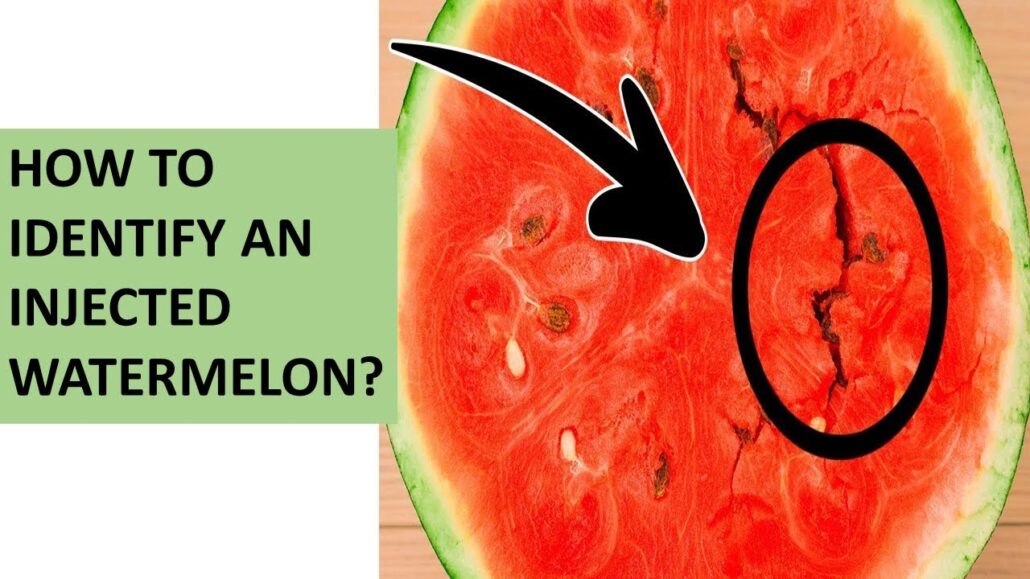
The latest controversy to erupt in Kashmir is of watermelons. This controversy erupted after few Kashmiri doctors alleged that artificial chemicals were used for ripening watermelons, adding this was not the season of watermelon harvesting. Most doctors stirred social media, affecting the livelihoods of many who rely on selling watermelons.
However, the claim of March-April not being a season of harvesting is not true and lacks basic research. According to National Horticulture Board, in India, the predominantly tropical climate makes all seasons conducive to watermelon cultivation. In states such as Tamil Nadu, Maharashtra, Andhra Pradesh, and others, watermelon cultivation is viable nearly year-round. However, watermelons are sensitive to cold and frost, necessitating cultivation in regions where winters are less severe.
Watermelons mostly thrive best in sandy loam soil that provides good drainage. They also grow well in black soil and sandy soil, as long as there is an adequate amount of organic content and proper water drainage. It’s crucial to ensure that water doesn’t accumulate in the soil, as this can lead to fungal infections in the vines.
Agriculture officials, The Kashmiriyat, spoke to also pointed out to the possibility of the cold storage and said watermelons can surely be placed in cold storage. “Every product in the market has contamination, not just fruits or vegetables. There is sub standard quality in everything we consume,” said an agriculture officer from Anantnag.
The allegations of watermelon adulteration spread rapidly on social media platforms such as Facebook pages and WhatsApp groups without adequate research or verification. However, it’s worth noting that the responsibility cannot solely be attributed to these platforms. If a doctor fails to conduct thorough research on a subject before making claims, they also bear some accountability for perpetuating misinformation.
Zahoor Ahmed, a fruit vendor from Anantnag says, “I had only got watermelons this year considering that people in Kashmir consume watermelons during Iftar. But this year, people are seeing us with suspicion. Not that the sales have gone down, but as a trader, I would not want to be viewed with suspicion,” said Zahoor
The controversy
In Kashmir, watermelons are highly consumed during the month of Ramadhan. Over the past five years, the consumption of watermelons during the holy month of Ramadan is pretty high. In the last Ramadan of 2023 alone, over 25 trucks carrying approximately 11 tonnes of watermelons, valued at around Rs 1 crore, were delivered to Kashmir daily.
This high consumption means a high intake too, mostly from the economically underprivileged. The remarks of doctors in Kashmir seem to be devoid of all the necessary research, but it has certainly created panic in Kashmir. No doubt, there are injected watermelons in the market available, not only during Ramadan, but throughout the year.
On Thursday, the panic prompted the Food Safety Department of Kashmir to conduct rigorous tests in the valley to confirm if the watermelons are artificially ripened. After the tests, the department rebuked the claims as baseless about premature ripening of watermelons with the use of chemicals and assured that the department remains committed to maintaining stringent food safety standards.
Deputy Commissioner Food Safety Department Shugufta Jalal said that the experts, who specialise in food technology, have conducted rigorous tests across the region and that the claims of premature ripening are baseless.
She said that the tests include both surveillance and indepth analysis using advanced equipment, and the results have confirmed that the watermelons are safe for consumption. “Watermelons are grown throughout the year in various parts of India due to the country’s diverse climatic conditions which makes the fruit available in all seasons, contrary to the claims that it is not a seasonal fruit,” she said.
Shagufta said that the department has been proactive with teams deployed and mobile testing vans stationed in key areas across Kashmir to conduct on the spot testing.
The doctor, who initially spread the rumour also faced her ire for “not consulting with the authorities” before making public statements as such remarks have caused undue distress among the population.
How to check for fake watermelons
Watch out for white powder: Sometimes, a white or yellow powder may be visible on the surface of watermelons. While it might be mistaken for dust, it could actually be carbide, a chemical used to accelerate ripening. Similar chemicals are also utilized in the ripening of mangoes and bananas. To mitigate the risk, it’s advisable to thoroughly wash watermelons with water before cutting into them.
Examine the color: Injected watermelons may appear excessively red, with heightened sweetness when sliced open. Additionally, a slightly burnt mark may be visible in the middle due to chemical treatment. Despite appearing fresh initially, these watermelons may actually be in a state of decay. You can also take a cotton ball and rub it on the surface of the watermelon, if the colour of the cotton ball changes, it is adulterated, if not it is good to consume.
Check for holes or cracks: Often, injected watermelons may exhibit small holes or cracks. While these imperfections might be dismissed as natural, they can indicate artificial ripening. If such openings are found upon cutting, it suggests potential injection.
Inspecting a watermelon: The most effective method to detect injected watermelons is by observing the aforementioned signs. Alternatively, allowing the watermelon to sit for 2-3 days after purchase can also reveal signs of chemical injection. Since watermelons typically have a longer shelf life, leaving them for a few days poses no harm. If during this period, foam or water emerges from the surface, it’s indicative of chemical injection.




